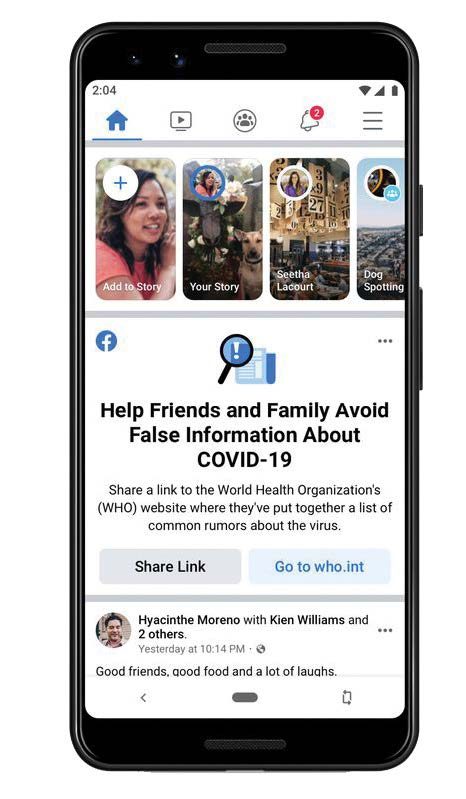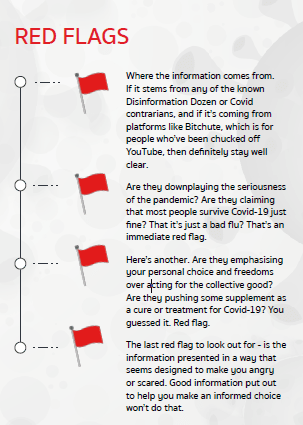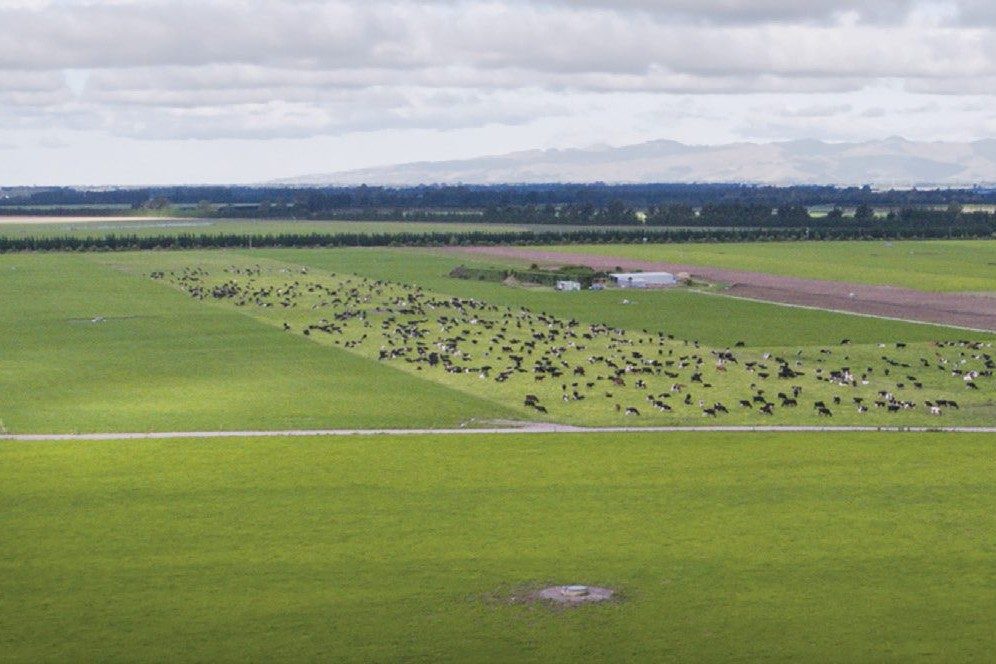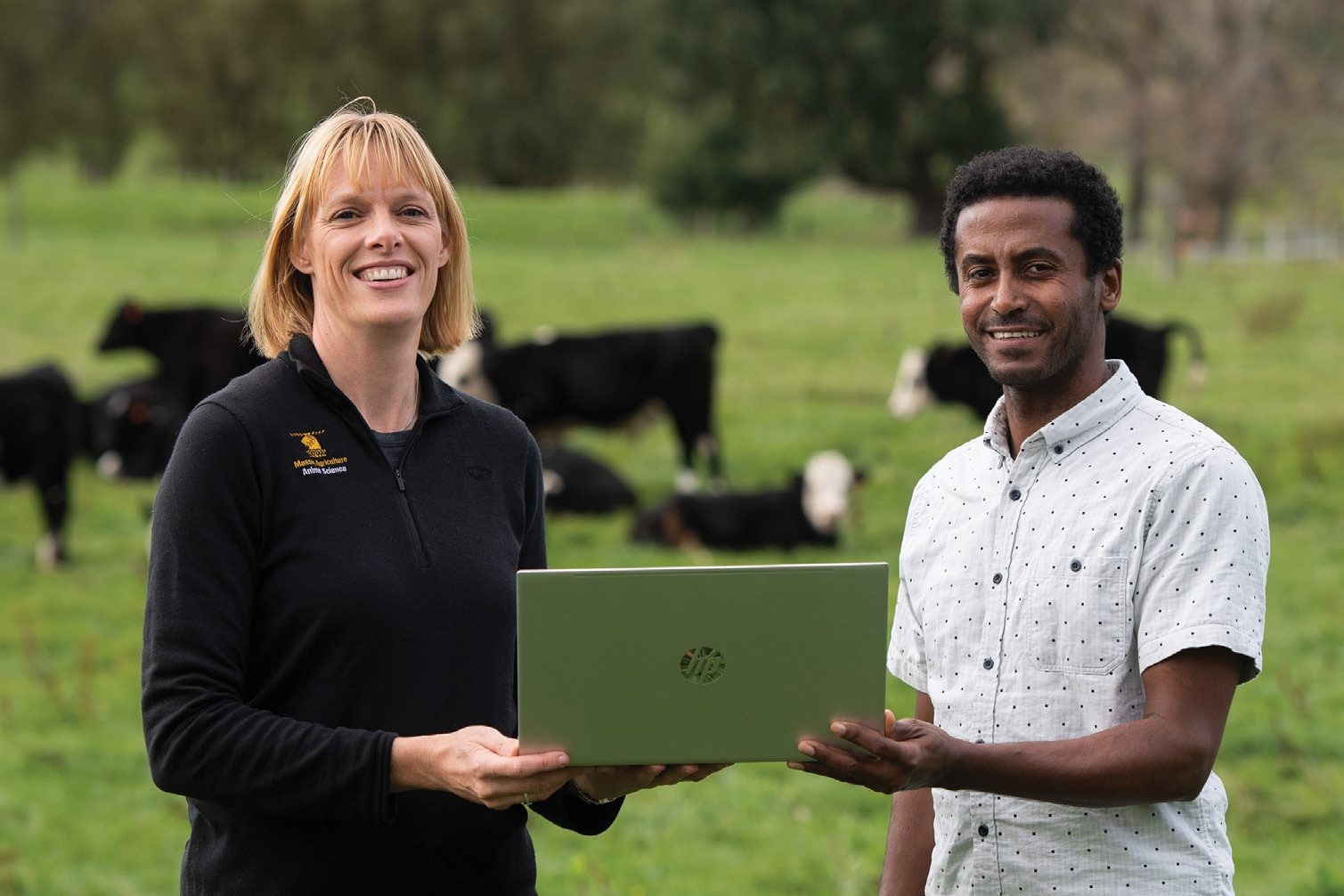By Delwyn Dickie
Disinformation and conspiracy theories on social media are rife and are often behind why some people are vaccine-hesitant.
Then add to the mix an array of bad actors connected to far-right extremism and white supremacy in the United States stoking local fires here on social media and the anti-vaccination protest events around the country start to make a bit more sense.
While there have always been anti-vaxxers, social media has given them a much larger and, with the way platform algorithms direct viewers to similar and progressively more extreme material, more captive audience.
The Centre for Countering Digital Hate (CCDH), noted earlier this year roughly 31 million people follow anti-vaccine groups on Facebook. Another 17 million subscribe to anti-vaccine accounts on YouTube. Between 2019 and 2020 the number of social media accounts held by people opposed to vaccinations rose by 8 million, they say.
They also found 65% of Covid-19 anti-vaccine misinformation and conspiracy theories came from the ‘disinformation dozen’, just 12 personalities.
Another study out of the University of Southern California into the link between social media use and vaccine hesitancy also found that anti-vaccine misinformation on platforms such as Facebook was extensive and poorly policed with 95% of the Covid misinformation reported to these platforms not removed.
“Facebook, Google and Twitter have put policies into place to prevent the spread of vaccine misinformation; yet to date, all have failed to satisfactorily enforce those policies,” CCDH CEO, Imran Ahmed, said in their report. “All have been particularly ineffective at removing harmful and dangerous misinformation about coronavirus vaccines.”
Leaked information from Facebook earlier this year, as disinformation around vaccines really ramped up, shows a group of Facebook employees found they could reduce the spread by changing how posts about vaccines were ranked in people’s newsfeeds, and offering posts from legitimate sources including from the World Health Organisation.
But this was shelved after a meeting with Facebook chief executive Mark Zuckerberg.
Facebook whistleblower Frances Haugen, a former Facebook employee also released internal documents this year accusing the social media giant of repeatedly prioritising profit over clamping down on hate speech and misinformation.
“Why would you not remove comments? Because engagement is the only thing that matters,” Ahmed says, “It drives attention and attention equals eyeballs and eyeballs equal ad revenue.”
Closer to home and the news is also bad.
After the country went into Alert Level 4 lockdown in August, researchers at Te Pūnaha Matatini connected to the University of Auckland spotted a big increase in popularity and intensity of Covid-19-specific disinformation online in New Zealand.
As part of The Disinformation Project they keep tabs on what’s happening on NZ social media.
“We’ve really witnessed a downgrading of social discourse – so an acceptability of really vulgar, obscene, denigrating, rude, misogynistic, racist terminology just being used,” lead researcher Kate Hannah says.
The extreme nature of some of this material seems to have become more appealing to New Zealanders during
lockdown and has spread locally, particularly on the platform Telegram. More worryingly, given the lower rates of vaccination among young Māori, Māori motifs and symbols – like the term hīkoi, and the United Tribes flag – have been used by pākehā disinformation spreaders.
These overseas narratives are being directly imported from white supremacist campaigns in the US, researcher Tina Ngata says.
On Facebook alone, the know Disinformation Dozen are responsible for 73% of all anti-vaccine content, though the vaccines have been deemed safe and effective by the US government and its regulatory agencies. And 95% of the Covid misinformation reported on these platforms were not removed.
A study out of the University of Southern California into the link between social media use and vaccine hesitancy found anti-vaccine misinformation on platforms such as Facebook was extensive and poorly policed. The 2021 study by Mckinley and Lauby, found 31m people belonged to anti-vax groups on Facebook and a further 17m subscribed to anti-vax accounts on YouTube.
Kyle MacDonald, a licensed psychotherapist based in Auckland, thinks talking about the pro-vaccination versus anti-vaccination divide is important right now.
“I think it is coming up all over the place and it’s getting really heated,” MacDonald says. This, he adds, is the crux of the problem.
“I think it is important to slow it down and get the heat out of it.”
“Anger is the natural response, but anger doesn’t help the relationship and it doesn’t help resolve conflict.” Instead, he suggests that by attempting to see the other person’s “truth” we are better able to salvage fractured relationships.
“The reality is that things are going to change,” he says optimistically, implying that when that happens, we don’t want to have said things to each other that can’t be unsaid. “It can be hard for both sides to see how ‘true’ the point of view is for each person.”.
No matter how invested you are in your position on vaccination the person opposite you feels just as strongly. MacDonald reassures us that while establishing “boundaries” with family and friends who stand across the divide from us is healthy, avoid pouring petrol on the entire relationship and lighting a match. supremacy in the US stoking local fires here on social media. Suddenly the outlandish fears the government is going to use the vaccine to control people, the vaccine affecting DNA so women will have mutant babies, and more stop seeming simply ridiculous and start looking more sinister. There is a serious campaign happening online to hone people’s thoughts and get their attention.





